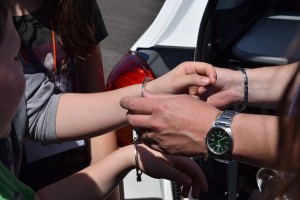 The Juvenile Interrogation Act, which prevents police from questioning juveniles without first providing an attorney has its critics, but it is not the only element of juvenile justice reform to come under fire recently. Other provisions of the recent reforms include the abolishment of criminal charges for children under the age of 13 in non-violent offenses. This seems like a policy everyone could get behind, and in reality, juveniles under the age of 13 who are charged will almost always have their cases resolved at the intake phase. State’s Attorney’s Offices do not make a habit of filing juvenile petitions against 11 and 12-year-olds unless the allegations are particularly shocking and/or violent. So, if the State will rarely, if ever, prosecute a child under 13 in a non-violent offense, then why would there be any critics of a law that bars arresting and charging them in the first place? The answer appears to be the skyrocketing number of motor vehicle thefts.
The Juvenile Interrogation Act, which prevents police from questioning juveniles without first providing an attorney has its critics, but it is not the only element of juvenile justice reform to come under fire recently. Other provisions of the recent reforms include the abolishment of criminal charges for children under the age of 13 in non-violent offenses. This seems like a policy everyone could get behind, and in reality, juveniles under the age of 13 who are charged will almost always have their cases resolved at the intake phase. State’s Attorney’s Offices do not make a habit of filing juvenile petitions against 11 and 12-year-olds unless the allegations are particularly shocking and/or violent. So, if the State will rarely, if ever, prosecute a child under 13 in a non-violent offense, then why would there be any critics of a law that bars arresting and charging them in the first place? The answer appears to be the skyrocketing number of motor vehicle thefts.
Motor vehicle thefts have been on the rise in most Maryland jurisdictions, though in Baltimore County the numbers have truly taken off. The county police reported a 175% increase in motor vehicle thefts over the past year, which means the number of victims has almost tripled. In Baltimore City there were almost 1,000 motor vehicle thefts in the month of May alone. This number is about triple the number of thefts in May of 2022, which is in line with the county numbers. Many of these offenses are committed by juveniles, but now the police are starting to see children as young as 11 being the culprits. Not only do the young children know there will be no consequences if they are caught, older juveniles are taking notice as well. Police have described incidents where older juveniles entice the younger ones to commit the thefts and drive the stolen vehicles so that neither will face retribution. County police allegedly linked the same 11-year-old to as many as 17 different auto thefts in the area around Dundalk and Essex, but have been unable to do anything about it due to the new laws protecting minors.
The argument against the juvenile reform is that there will be no intervention with teeth for these young children, and that they will learn at a young age that there are no consequences for committing crime. On the other hand, the department of juvenile services and the court system will still be able to intervene starting at age 13 in non-violent offenses such as theft. It is debatable whether the law barring children under 13 from being charged has done more harm than good. In reality there are logical arguments to be made on both sides and the right answer is somewhere in the middle. Still, it would not surprise us if both sides of the spectrum continue to cry foul to the legislature, and some sort of modification to juvenile justice reform passes next spring.
 Criminal Defense Lawyer Blog
Criminal Defense Lawyer Blog










